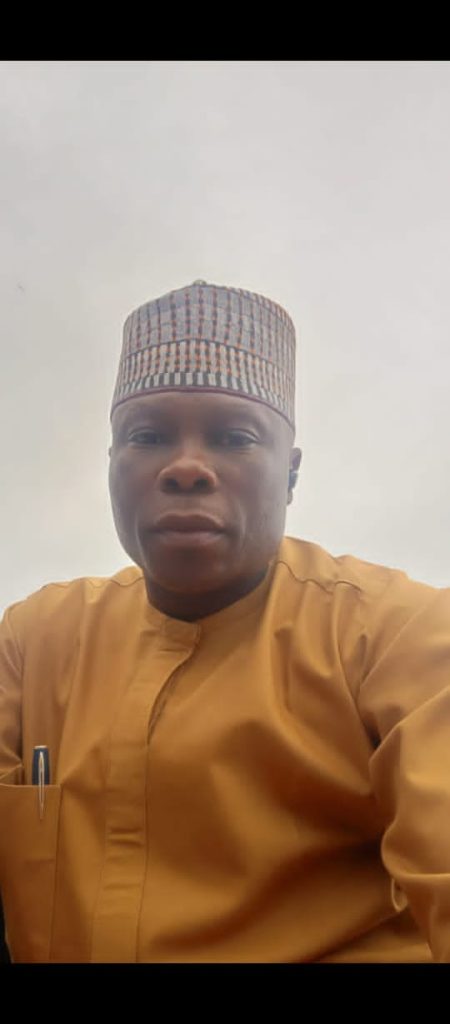Public servants and educational excursions
Public servants and educational excursions
By Bayo Fasunwon
|
Some few weeks ago, Nigerians woke up to see the picture of one of the Vice President’s children and parents beaming with smiles, on the pages of newspapers and social media. The Vice President had attended the convocation ceremony of one of his wards, in a foreign university. Rather than sharing in the joy of the graduate, many Nigerians were visibly angry at the event. The social media were filled with uncomplimentary remarks, and questions on why the Vice President had not allowed his ward to have a taste of the Nigeria University system, that most Nigerians go through.
They also brought the mind to the fact that the President had also trained his children in Europe. This trend is also not limited to the duo, but past and present legislators, governors, business tycoons and many public servants have also in the habit of flaunting their foreign trained children. The disdain and shock over such news got to a height, when Nigerians realized that a member of the NURTW and a staunch follower of an APC chieftain did not only have his son graduating from an American University, but also with distinction that made his parents earn an invitation to the governors office in the land of the whites.
There are different schools of thought on the cause of Nigerians angst against the international training of Politician’s ward in foreign universities. In the first instance, they perceive that these children of situational leaders and political employees could not have the means to train their wards outside the shores of Nigeria, given the cost of University education abroad. They therefore conclude that these Politicians are using ‘our money’, to train ‘their children’, to the detriment of the general populace. To them, this is corruption personified. Even when the aggrieved are made to understand that the Vice President has been a Professor of Law for a long time, and had also been a commissioner; they still could not accept the fact that he would be a man of much means to cater for the foreign education needs of his children without his benevolent and greedy consumption of his clandestine access to the national cake. This same opinion they hold against other political leaders and bourgeoisie that affords the high cost of foreign tertiary institutions for their wards. However, the truth is that many Nigerians, whose parents are neither politicians nor bourgeoisies, are schooling in foreign tertiary institutions. Therefore, these men ma y not necessarily have to embezzle before they could train their children. Besides, their legitimate salaries and emoluments, not forgetting access to scholarships could adequately empower them to ensure that their wards have a ‘TOKUNBO’ certificate.
Another school of thought explains the phenomenon on the basis of security for children of leaders. Given the state of insecurity in Nigeria, and the fact that political leaders could be arm twisted or forced to take policy initiatives that may be inimical to their political career and the nation, it would be in their best interest to insulate their children against such blackmails by keeping them out of the country. Also, within the context of blackmails, they have to ensure that their wards are not framed up in conspired espionage on issues of rape, cultism, examination misconduct or other vices. Some have faulted this paradigm on the basis that Presidents and political juggernauts of other developed countries have not ‘exported’ their children to other countries in the guise of political security. They are of the opinion that leaders who base their children’s education excursion on these flimsy excuses are not only mischievous but shameful clowns. These antagonists have on the other hand posited that most politicians and leaders in Nigeria send their children to Europe as couriers of money laundering. To them, educational monies have become legal means of siphoning funds from Nigeria to secret accounts in Europe under the guise of funding their children’s education in Diaspora.
While all these perspectives may have their levels of validity, I want to propose another school of thought on these phenomena. My take is that while these assertions may have degrees of validity, the major cause of capital flight from Nigeria via foreign tertiary certificates, is the nature and status of Nigeria’s tertiary educational system. A cursory investigation into the studentship of tertiary institutions in Europe and even Africa would reveal that most of these Universities are sustained by foreign cash flows, mostly from Nigeria. So, why would a Nigerian forsake the close to 200 universities in Nigeria and travel to Benin Republic, Ghana, Canada, Britain or any other country in the world to get a foreign training in order to work in Nigeria? The major reason would be that these foreign universities are giving them opportunities which the indigenous universities are lacking.
Contrary to expectations, quality staffing could not be the reasons for this exodus. One is bold to make this assertion because Nigeria academics are respected and are held in high esteem beyond the borders of Nigeria. The dexterity of Nigeria academics is responsible for the brain drain in the countries’ tertiary institutions. If the lecturers are of inferior value, no country would seek to lure them away with better packages than what Nigeria could offer. Many Nigerian academic staffs are paid consultants to some of the Ivy League universities, and are proving their expertise in their various fields. In addition, private tertiary institutions in Nigeria that are making waves actually poach the public universities for qualitative instructors. Without mincing words, the brains are in the public universities, but the rich and politicians are avoiding them. It has also been observed that academics that operate at a lower level of productivity in Nigeria are often celebrated as geniuses when they relocate to tertiary institutions abroad to ply their trade.
Given the above scenario, it therefore implies that the environment in which tertiary institutions operate in Nigeria is seemingly hostile to the viability of tertiary institutions. In Nigeria, while admission to study in public tertiary institutions is predictable, completion of academic programmes are not predictable. This is due to the fact workers (academic and non academic) are prone to executing strike actions that can lead to closure of such institutions for a long time. Unfortunately, most of the issues for which strikes are embarked upon are things that any reasonable government who value education and seek for the development of the tertiary education system ought to have done without duress. It is in Nigeria that lecturers have to go on strike before salaries are paid; before lecture theatres are built or refurbished; before agreements are implemented; before researches are funded or even before students’ welfare are protected. Many State governments create many tertiary institutions in order to get allocations from TETFUND without providing running costs to such institutions. Governors are proud to release 60% allocations to such institutions and expect workers to donate the remaining 40%. Students lack hostels, most buildings are TETFUNDed, and capital projects from governments are nonexistent. Often times, certain researches and experiments are deliberately avoided due to the fact that the tertiary institutions cannot afford the requirements of such knowledge. When funding becomes an issue, such tertiary institutions cannot know peace, and students cannot be adequately prepared to finish well and on time. Therefore, those who cannot endure the torture send their children to a predictable academic programme abroad. Therefore, no matter how loud tertiary institutions lament, and or the length of closure, political office holders are unconcerned because their children are not affected.
Therefore, our political leaders are unperturbed at the rot they create in our tertiary institutions by their wrong policies, deliberate under funding and disdain for the enlightenment that tertiary institutions provide for the Nigerian youths. One could only wonder if the attitude of Nigerian leaders towards tertiary institutions would remain lackadaisical if laws are enacted that prohibits public office holders from sending their wards to foreign tertiary institutions as long as they are in office. The debate remains open.










